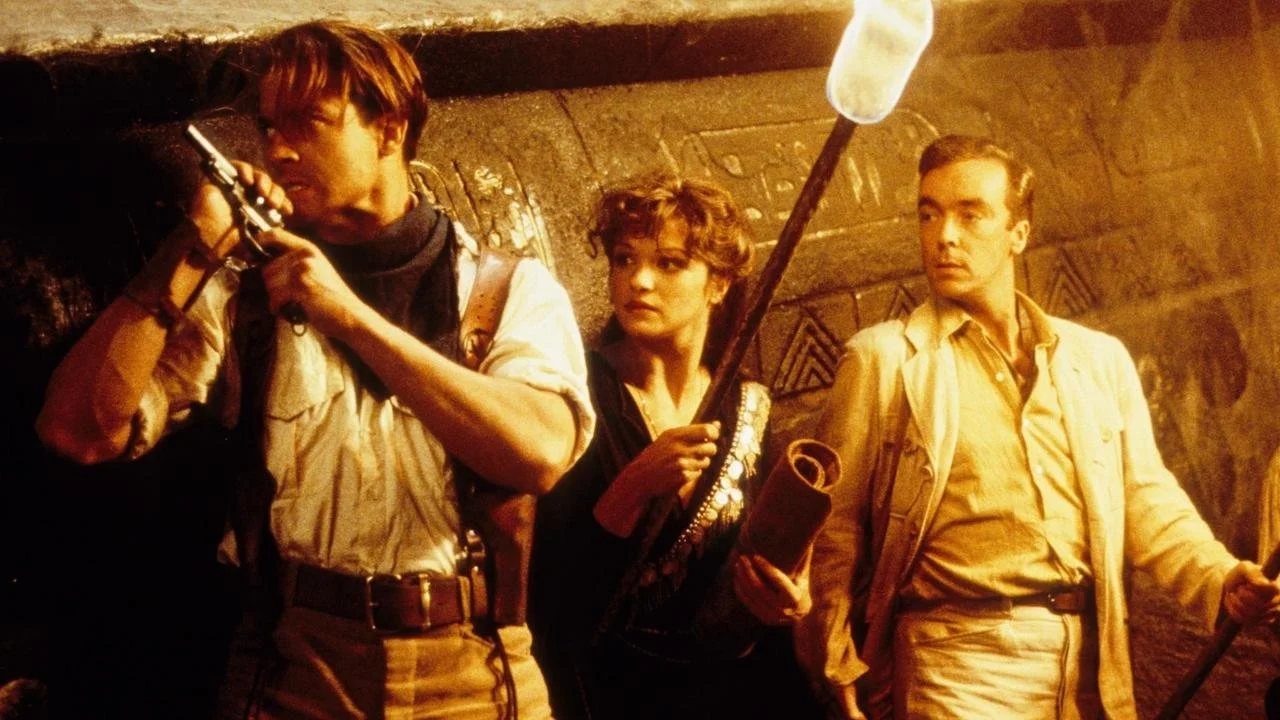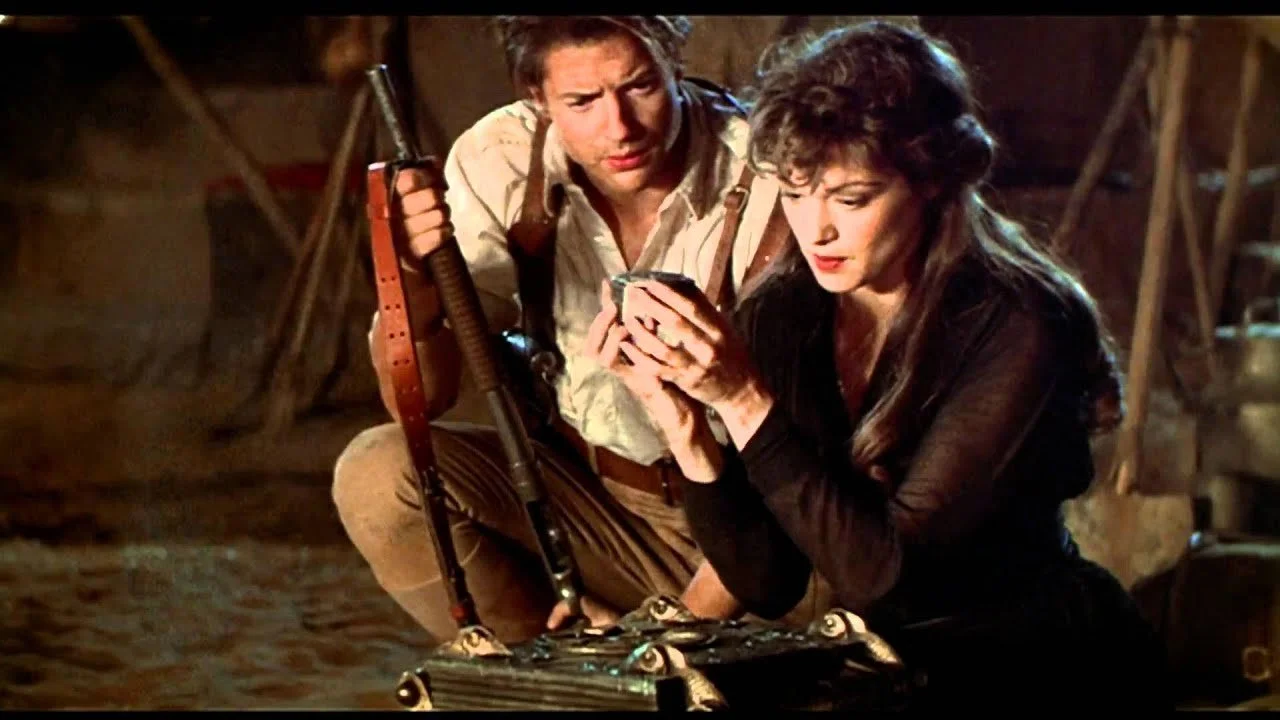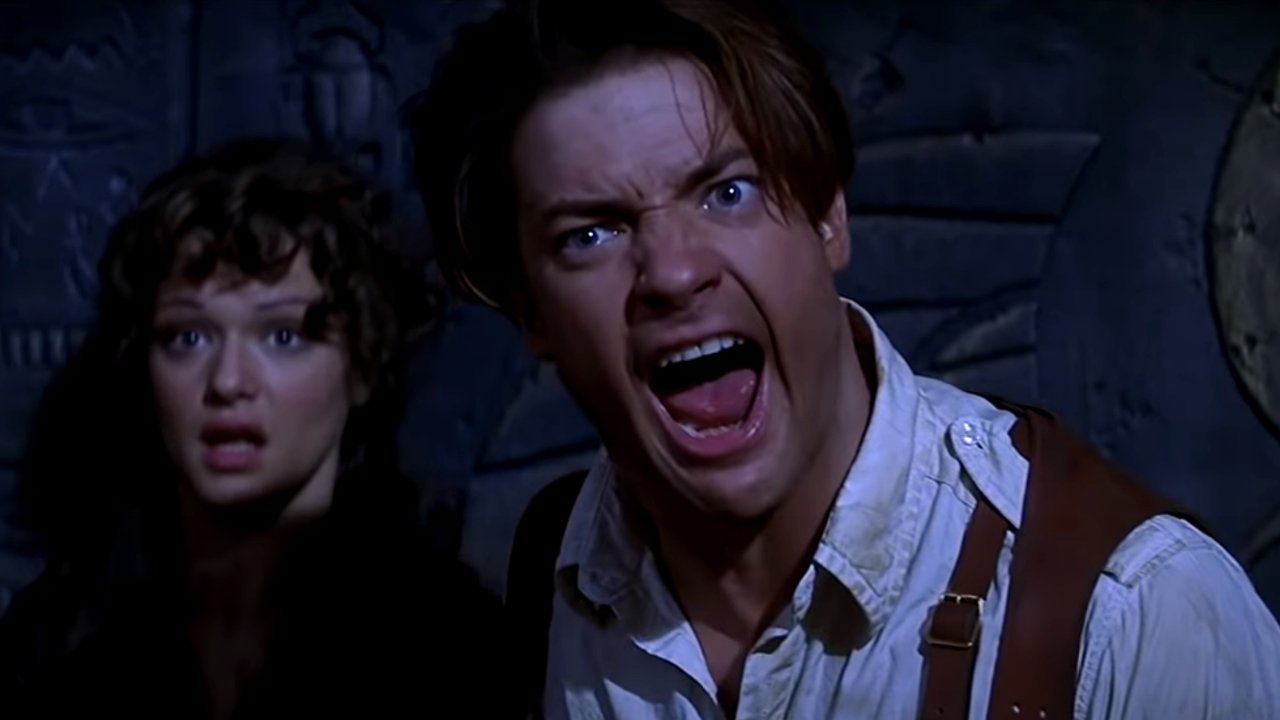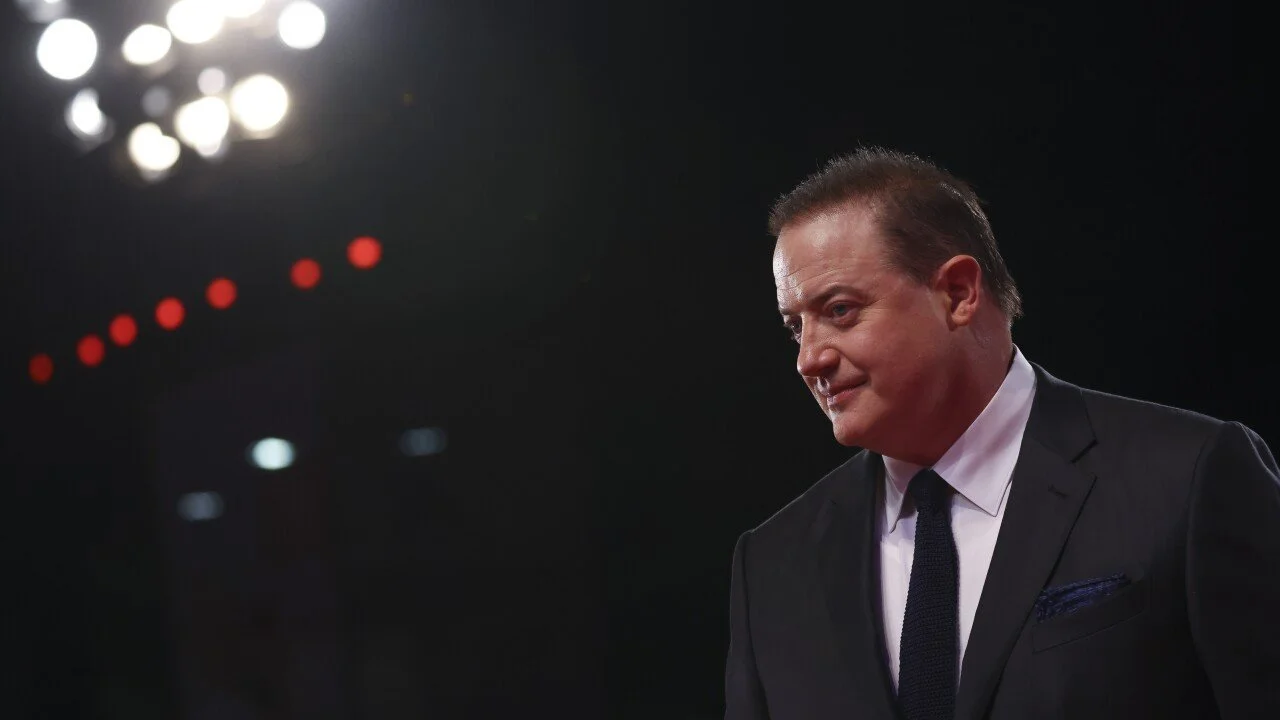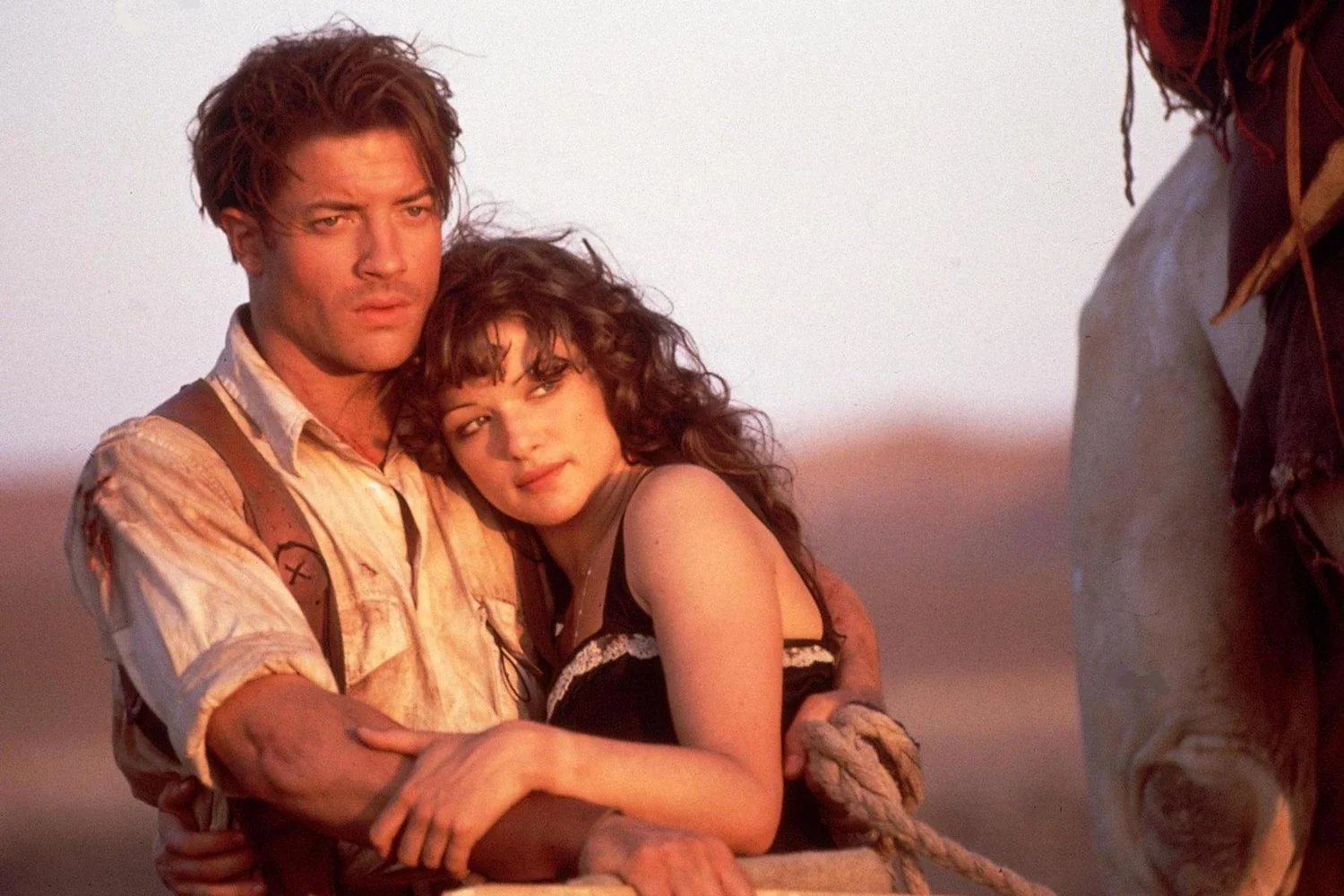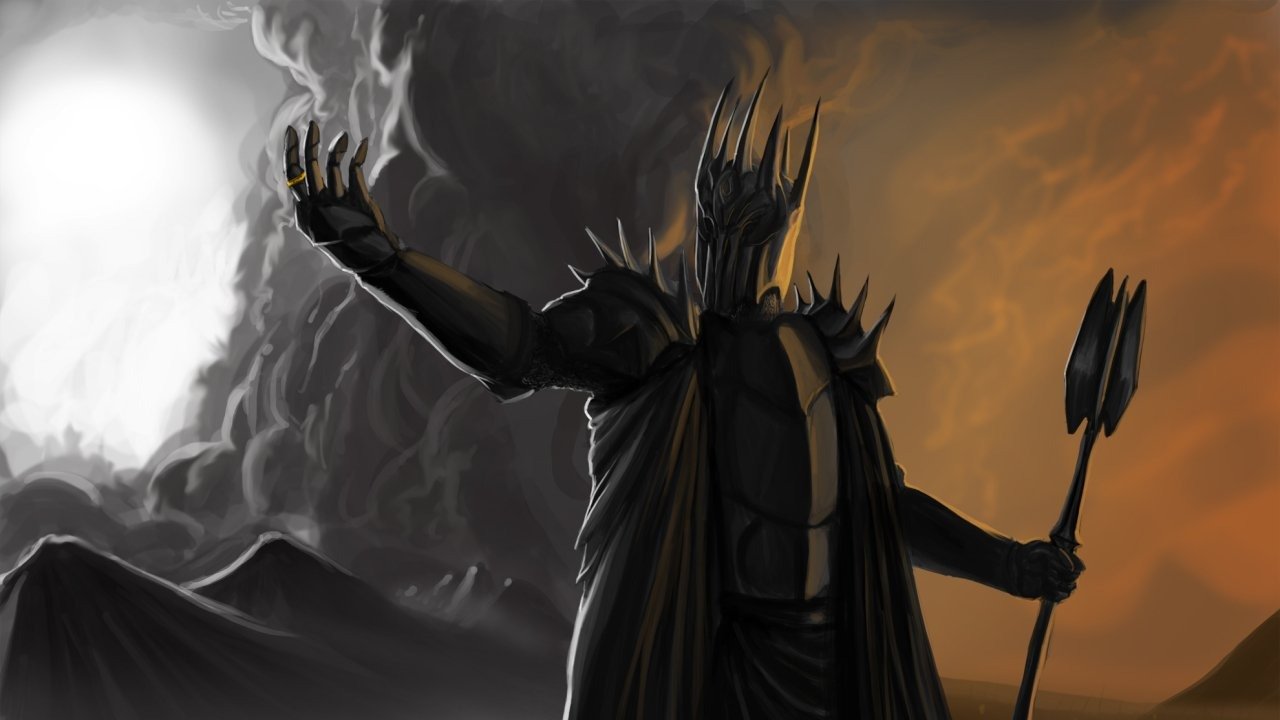Why ‘The Mummy’ (1999) Is The Perfect Adventure Film
Image Source: MUBI
The adventure film has been a landmark of cinema dating back to its realization as a commodity. Films like Merian C. Cooper and Ernest B. Schoedsack’s King Kong (1933) and Michael Curtiz and William Keighley’s The Adventures of Robin Hood (1938) gave the genre breath. Victor Fleming’s The Wizard of Oz (1939) and Akira Kurosawa’s The Hidden Fortress (1958) gave it transcendent storytelling and David Lean’s Lawrence of Arabia (1962) gave it profound scale. Films like John Huston’s Moby Dick (1956) and Henry Levin’s Journey to the Center of the Earth (1959) poked at what we would come to understand as a deep-seated desire for adventure.
The genre is always evolving. It has taken on elements of danger, romance, and a Western fascination with that that is inherently exotic to them. Steven Spielberg’s Raiders of the Lost Ark (1981) cemented the bones of what made an adventure film. Stephen Sommers’ The Mummy (1999) mastered that which was attempted by so many films that came before it. The perfect mix of casting chemistry, danger, what we now call a “sense of adventure”, the appeal of the exotic to the Western audience, a tinge of sexuality, romance, the courage to not take itself overly seriously, and a villain you fervently believe to be a threat is the blend that made The Mummy (1999) the perfect adventure film!
RELATED:
A Film That Transcends
Image Source: Entertainment Weekly
Stephen Sommers’ adventure film was not a critical darling. In fact, Rotten Tomatoes’ Critic Consensus reads: “It’s difficult to make a persuasive argument for The Mummy as any kind of meaningful cinematic achievement, but it’s undeniably fun to watch.” However, there was something about it that connected. It did something that so many films attempt to do, to go beyond criticism to become something that transcends. One of those films that when a friend, upon hearing that you have not seen it, remarks: “what!?”
One of the reasons for this can be found in the luminous performances of Brendan Fraser and Rachel Weisz. Fraser is the arrogant, jerkish, dumb, loveable, and wholesome lead that romance tropes are made of. The character’s influence is felt in characters like Christ Pratt’s portrayal of Star-Lord in the Marvel Cinematic Universe and the iconic Nathan Drake from Naughty Dog’s Uncharted video game franchise.
Rachel Weisz’s portrayal of Evelyn Carnahan means a lot to many. She utilizes her cunning intellect and knowledge of Egypt to defeat their foes. She values the importance of the culture and history of the Ancient Egyptians as much as she cares for those around her. She is a character that a lot of modern action-adventure films would fumble, by making her do the things “that the men in the film do,” like that has inherent meaning.
A Perfect Moment
Image Source: CinemaBlend
The greatest moments in film, to me, are those that show us who a character is, rather than telling us. Stephen Sommers’ adventure film has one of my favorite illustrations of this: when faced with the reincarnated, ghoulish Imhotep, Fraser’s Rick O’Connell yells at the creature, where many would scream or run away in fear. It illustrates that the traits evident in this character are wholly unbroken, even in extreme circumstances. It is also humorous, a tension slicing tool that was utilized in the Indiana Jones film franchise and would be carried on to future adventure films like Gore Verbinski’s Pirates of the Caribbean: The Curse of the Black Pearl (2003).
Room To Grow
Image Source: 10News: San Diego
We now know the toll films like The Mummy (1999) took on Brendan Fraser. In an interview with GQ, Fraser noted that by the third film in the series he was “…put together with tape and ice.” This, in combination with the atrocious portrayal of the Arab people in the film, indicated that although we had found the magic formula, film could still go places with that blueprint. Hopefully in future adventures, films can conjure magic in incredible places without directly or indirectly harming the audience or those involved in its production.
After The Curse Is Lifted
Image Source: Filmaffinity
The magic of the film has proven difficult to recapture. The subsequent reboot saw mixed reactions from audiences everywhere. The wake of The Mummy (1999) saw absolute masterworks of adventure. Some include Peter Jackson’s The Lord of the Rings: The Return of the King (2003), and Gore Verbinski’s Pirates of the Caribbean: The Curse of the Black Pearl (2003). However, the specific chord that The Mummy (1999) stuck still rings in the hearts of many.
READ NEXT:
Source(s): Universal Monsters Database

